Review for Fuku-chan of Fukufuku Flats
Introduction
I had a bit of a shock when I first took a look at this check disc and found it to be a PAL release. For quite a while now, Third Window Films have been releasing their DVDs as native and progressive NTSC, matching the original source material in terms of frame rate and audio pitch. Prior to that for about a year or so, they released their discs as NTSC-PAL standards conversions, which is the worst of both worlds. For a moment I feared it would be another one of those, but this one turned out to be native PAL with the requisite 4% speed-up. As to why go PAL, that became clear when the disc booted up with three menu options; English, Italian and German. PAL is still the standard SD option across Europe, and if that is what Italy and Germany require, that explains the PAL format. But why Italy and Germany alongside the UK?
That comes down to the state of Japanese cinema today, which mirrors cinema in general, heading straight into the overpriced doldrums of unoriginality. Just as Hollywood repeatedly banks on sequel after sequel, reboot after reimagining, so it is in Japan that the film committees now throw the big money at the sure thing, the manga and novel adaptations, the Attack on Titans, leaving independent cinema confined to the micro-budgeted small-scale affair, a lot like the recent Be My Baby. The mid budget independent film is an endangered species, just the kind of quirky, original, but well produced affair of the sort that has informed Third Window Films’ catalogue to this point.
The money just isn’t there for these gems of creativity and experimentation, so Adam Torel of Third Window Films is very bravely putting his money where his mouth is, and going into film production. But while investing in Sion Sono’s Land of Hope is a risk that paid off, it’s still a massive risk. So using the Japanese model of committees, Fuku-chan of Fukufuku Flats is produced through a new paradigm, a committee of foreign film distributors sharing the risk. The UK’s Third Window Films has partnered with Italy’s Tucker Films, Germany’s Rapid Eye Movies, and Taiwan’s Joint Entertainment to invest in Yosuke Fujita’s second feature. If this works, this might just be enough to keep the kind of cinema that I love alive!
It’s because of that risk-averse nature of cinema right now that this is only Yosuke Fujita’s second feature film after 2008’s Fine, Totally Fine (also available here through Third Window Films), a gap of six years. Fine, Totally Fine was a wonderful, thoughtful and eccentric feel-good comedy, starring the director’s muse, Yoshiyoshi Arakawa; a film of such affable entertainment that I would have thought that further films from the director would rapidly follow. But it’s only now that we get to see whether he can deliver on that promise. Has Fuku-chan of Fukufuku Flats been worth the wait?
Tatsuo Fukuda a.k.a. Fuku-chan is a great guy. He works as a painter, loves making kites, and is proactive in keeping the peace among his co-workers (usually by tempering the excesses of his tactless friend Shimacchi), and among his fellow residents at the flats where he lives, Fukufuku Flats. His one character flaw might be that he is single, something that Shimacchi and his girlfriend try to rectify through matchmaking. But Fuku-chan just finds it hard to talk to women.
Chiho Sugiura is a well-off professional who’s just quit her job after winning a photography contest, and catching the eye of her artist idol, the Bohemian Numakura. Numakura offers to mentor her, to shape her into the artist that she’s supposed to be, but his methods leave a lot to be desired, and Chiho winds up depressed, out of work, in her pyjamas with crisps in her hair, drowning her sorrows in pudding in a restaurant. Only the unconventional restaurateur makes an observation that sets Chiho back on her heels. This is all the result of karma, of a pain she caused to someone in her past. So it is that Chiho knocks on Fuku-chan’s door, an act that will open old wounds for him, but offer inspiration to her.
Picture
Fuku-chan of Fukufuku Flats is presented in 1.85:1 anamorphic widescreen in native PAL format. That does give it some 96 extra lines of definition to play with, as I suspect the film is sourced from an HD master, at the expense of having the film run 4% faster at 25fps. It’s a good transfer of a contemporary film, the image is clear and sharp throughout, detail levels are good, as is the contrast, and it brings the film’s engaging cinematography across to great effect.
Sound
The film gets a DD 5.1 Japanese soundtrack with optional English, Italian, and German subtitles. The dialogue is clear throughout, and there is a subtle level of surround design that gives the film some space, without sounding obtrusive. The surrounds offers some ambience, but are really used mostly for the film’s music, including a delightful folksong style theme. The subtitles are accurately timed, but the odd error slips in, Numakura was spelled Namakura on more than one occasion, a couple of phrases were parsed awkwardly enough to get me to skip back and pause to make sense of them, and there is the odd typo as well. One extra proof-read wouldn’t have gone amiss.
Extras
When you put the disc in, you have the choice of English, German and Italian animated menus. You only get access to that particular subtitle language through the appropriate menu, although you can flip through them all during the film with your remote.
The film is preceded by a 54 second introduction by the director Yosuke Fujita.
On the disc you’ll find a 16:36 interview with the director which goes into a fair bit of detail on the making of the film. The image doesn’t quite stay in focus throughout, but the subtitles are clear enough.
The Discussion With Actress Miyuki Oshima, Director Yosuke Fujita, and Producer Adam Torel, is a press conference style Q & A that runs to 18:57. It’s an interesting watch, and the interpreter is edited out in favour of subtitles.
Finally there is the 2:07 trailer for the film.
Conclusion
Let’s get the obvious out of the way first. Fuku-chan is played by Japanese comedienne Miyuki Oshima. She’s shorn her locks, bound her breasts, dressed down and adopted the mannerisms of a male and it works perfectly. The performance is excellent, and the gender of the actor never comes into question. You accept the character as portrayed. As to why, you can hear in the extras how Kosuke Fujita was inspired by the idea of Miyuki Oshima as a man, and wrote the film around that vision. And this time Yoshiyoshi Arakawa, who looks similar enough to be the main character’s brother, plays the tactless but likeable Shimacchi. So Fujita’s muse is still here.
The film is wonderful. I enjoyed every minute of it, got drawn in by the story, and invested in the characters, and I found that just like Fine, Totally Fine, it’s another feel-good, quirky comedy, yet thoughtful and emotionally resonant. It has the odd vignettes, the slightly twisted view of the world that makes the mundane, rich and delightful. It’s also cast with offbeat and peculiar characters, human and believable, but eccentric enough to enchant. You know you’re in for a voyage of idiosyncratic discovery when the film starts with a fart to the face as an alarm clock (Arakawa’s the culprit), followed by a workplace mediation with daft results.
But I like this film more than Fine, Totally Fine as it has a much stronger message, takes its main characters on a journey of growth. The story is about bullying, and the consequences of it. A moment of forgettable and trivial cruelty on the part of a bully can have long term consequences for the victim, and at the start of the film, Fuku-chan is that victim. What Chiho did to him when they were at school has scarred him, made him unable to trust, and it’s only when Chiho comes trying to correct her karma that Fuku-chan can begin to heal. It’s a bumpy road, and the inevitable question arises of Chiho’s motives, and the possibility of Fuku-chan being hurt again.
But as I said, it’s the characters and the moments in this film that serve to delight. Whether it’s the rookie painter who wants to be an enka singer, Fuku-chan’s co-residents, the snake owner lamenting his loneliness, or the paranoid neighbour who’s trying to redeem a past of panty-theft, the film is filled with vignettes that make you smile. I almost bust a gut at the Indian restaurant scene, with a waiter with his perfect vision of Indian food, refusing to cater to his customers’ personal preferences. I used to get the exact same service at Chutneys in Drummond Street 20-odd years ago, from the scariest waiter I had ever seen. The food may be painful, but this film is anything but. Fuku-chan of Fukufuku Flats is my favourite Third Window Films release of the year so far, and I sincerely hope that it doesn’t take another six years for Kosuke Fujita to regale us with another feature film.































































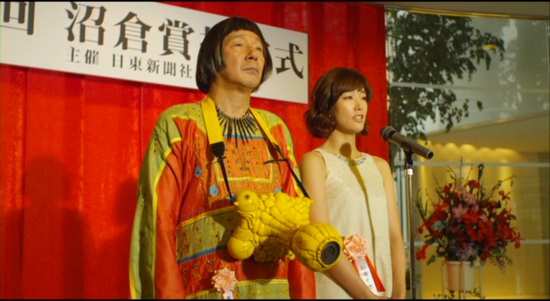
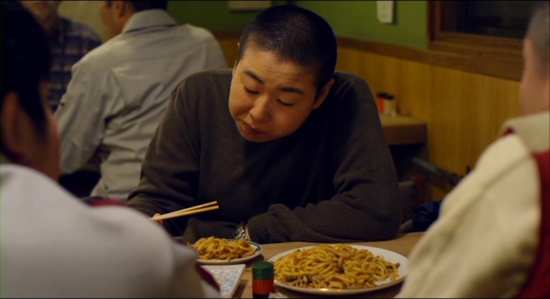
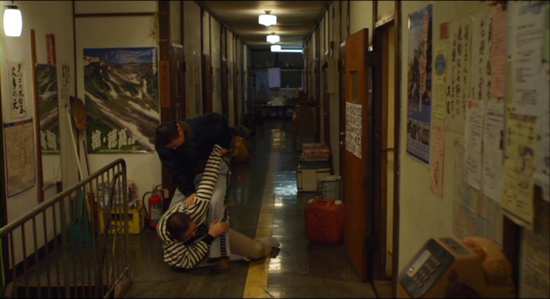
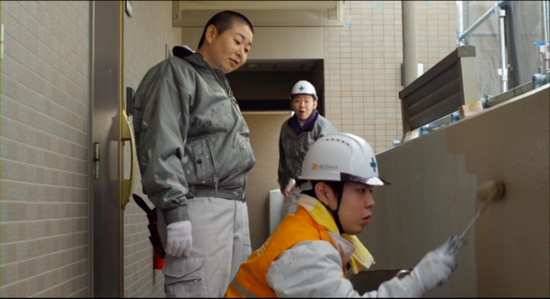


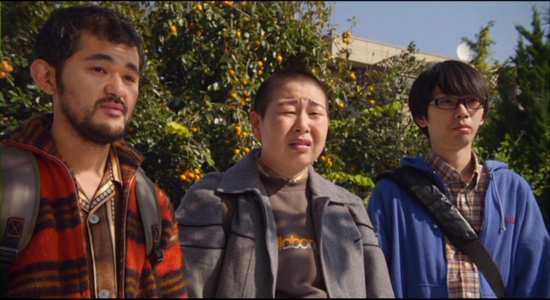
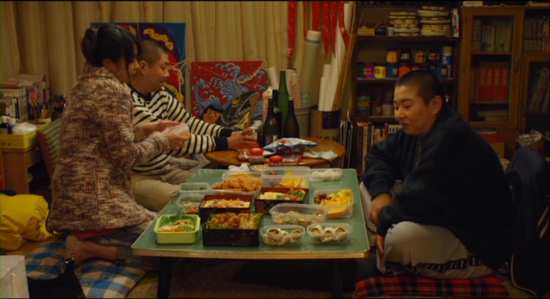
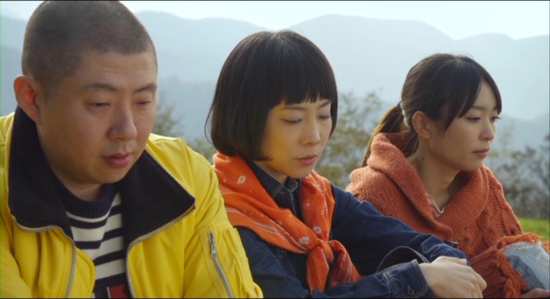
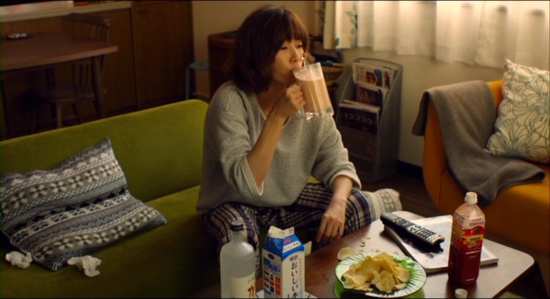
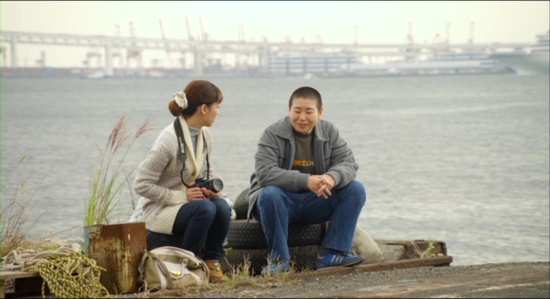
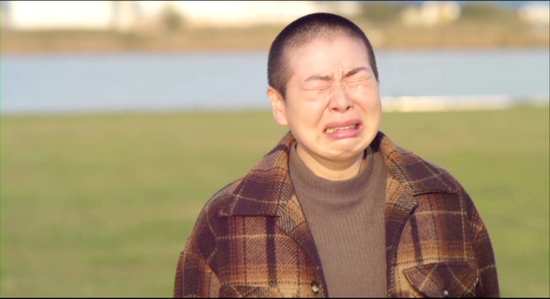
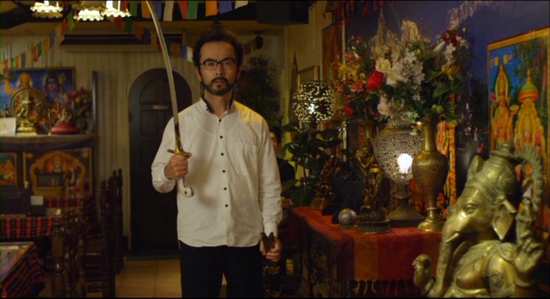
Your Opinions and Comments
Be the first to post a comment!